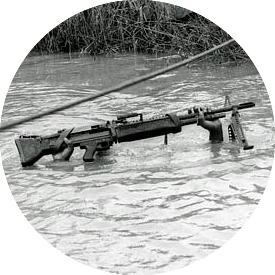Any time I have the opportunity to talk about Punisher I go all out. Of the Marvel Pantheon, he is the most interesting character with great depth that many readers overlook. Garth Ennis was the first to delve into Frank Castle’s psychology in Punisher MAX, exploring his transformation during the Vietnam War and time as a vigilante. After reading so many comics, I have come to the conclusion that Frank is a Nietzschean Superman.
To the uninitiated, Fredrick Nietzsche was a philosopher that pioneered the concept of nihilism, the belief that morality means nothing because they are ideas adopted on the basis of human ignorance. He really spoke to me growing up and influenced how I see the world today. My knowledge of Nietzsche is cursory to say the least, so I recommend doing your own research.
One of his more famous concepts is the Superman or Ubermensch, introduced in Thus Spoke Zarathustra. The Superman is an individual that can transcend the bounds of common belief and operate on his or her own terms. They are completely independent and function on logic alone, forming a set of values that supersede those of the majority, and shaping their destiny.
In fiction and history there are positive and negative examples of the Ubermensch. The Founding Fathers, Napoleon, and Hitler overcame society and did what they wanted. Colonel Kurtz from Apocalypse Now discarded morality for instinct to fight the Vietcong. The Emperor from Warhammer 40k developed the logic based Imperial Truth to unite disparate human worlds across the galaxy. The Brotherhood of Steel from Fallout worshiped technology because it means salvation for the Wasteland.
The Superman concept fits right in with the pseudo-objectivism of superheroes. A hero using their powers to save people could be a form of showing how much better they are. Does Clark Kent really care about humanity or does he enjoy being revered? Why else would Batman enforce his own justice if not to assert his values? Does Captain America use his inherent symbolism as a way to show others how to act and behave? Though cynical, it is hard to deny the underlining motivations of vigilantes. What really drives someone to take up a symbol, a set of principles, and enforce it upon the people they do not like?
Castle’s transformation into a Nietzschean character happened in Vietnam. Overtime, he could not live without war because he loved fighting. In the story Born, America was pulling out and Frank actively prevented his unit from leaving their post. Later his war ended, but when he returned home, the incident that killed his wife and children forced him back into the mindset of a soldier.
He is driven by a bloodlust resulting from PTSD. Usually soldiers at home will want to go back to the front because that was the last place they felt normal. You spend a year in place where everyday could be your last and when you transition into a whole other environment, it can be difficult to accept the change. Hunting Vietcong was Castle’s normal and after his family was murdered, he saw the gangsters, murderers, and child molesters as Vietcong. Even after getting revenge he kept going because he believes he is fighting a war and does not want to stop.
Frank’s set of values as an Ubermensch is based on basic justice and pure instinct. His motivation is very simple: If you are evil, you die. He has no problem murdering someone for even associating with people connected to a major crime. He killed his partner Microchip because he worked for a heroin kingpin and executed a thug that helped him infiltrate a gang hideout.
He sees the world in a black and white moral spectrum. Castle thinks you are either totally bad or totally good with no in-between. When dealing with good, he acts with a compassion that penetrates his stoic demeanor. He was once a family man and when reminded of that life, he regresses into a father or husband. Frank is selective about what he cares about, but he actually cares and feels emotion. Mother Russia has the strongest example where he rescues a little girl from a missile silo and prevents her from seeing the worst of him. When fighting off waves of Russians, he made sure the girl was nowhere in sight of the violence and safe.
Castle holds so close to his values that there is no room for hesitation. He is a practical man, using his training as a soldier to function in all aspects of life besides work. If he owes someone a favor or they have something he needs, Frank is willing to play nice, which happened a lot in Punisher MAX. He is dismissive about working with others and moves on once he gets what he wants.
There is also no feeling behind his need to punish because to him it is normal. It takes a very specific event to really compromise Castle’s cold exterior. One time was a mobster filming himself defiling the corpses of his family. Another was a prostitute telling her story about being a victim of human trafficking. In those instances, Frank’s stoic bearing broke and he was a different man all together. After the deed was done he returned to a state of calm.
We idolize heroic figures because they transcend our notions of humanity. Inside us is the power to be something more and all it takes is the will to do so. Fredrick Nietzsche believed that the Ubermensch was the next step in human evolution as we drift further away from our primordial roots. Frank Castle is just one of many possibilities if we are to realize our potential. He may not be the most ideal, but even damaged of individuals have the capacity to become heroes.







































